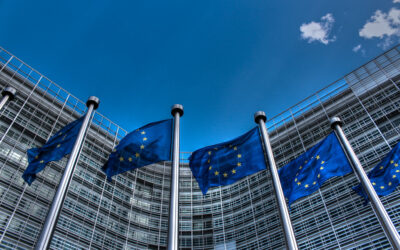
In today’s article, we will explore the new Accounting Standard, IFRS 19, and the benefits it will bring.
The International Accounting Standards Board (IASB) has issued a new IFRS Accounting Standard for subsidiaries on the 9th of May 2024. The new standard, IFRS 19 Subsidiaries without Public Accountability: Disclosures, allows eligible subsidiaries to use IFRS Accounting Standards with reduced disclosure requirements. IFRS 19 reduces the costs associated with preparing subsidiaries’ financial statements while ensuring the information remains useful to its users.
When a parent company prepares consolidated financial statements in compliance with IFRS Accounting Standards, its subsidiaries are required to report to the parent using these same standards. However, for their own financial statements, subsidiaries can choose to use IFRS Accounting Standards, the IFRS for SMEs Accounting Standard, or national accounting standards.
Subsidiaries that use the IFRS for SMEs Accounting Standard or national accounting standards for their own financial statements often maintain two sets of accounting records due to the differing requirements between these standards and IFRS Accounting Standards. Subsidiaries that follow IFRS Accounting Standards for their own financial statements often provide disclosures that exceed the information needs of their users. Subsidiaries are eligible to apply IFRS 19 if they do not have public accountability and if their parent company uses IFRS Accounting Standards in its consolidated financial statements. A subsidiary does not have public accountability if its debt or equity instruments are not listed on a stock exchange and if it does not hold assets in a fiduciary capacity for a broad group of outsiders.
The savings and simplifications will result from:
- Unifying accounting policies within groups: This will eliminate the need for dual accounting records.
- Reducing disclosures in eligible subsidiaries’ financial statements: This will lower the time, cost, and effort required for preparing and auditing these financial statements.
What are the benefits for jurisdictions?
Jurisdictions seeking to attract inward investment aim to become attractive locations for starting, growing, and investing in businesses. Enabling the use of IFRS 19 will contribute to this goal by reducing costs for global companies and allowing a global financial language to be applied throughout the group.
Allowing eligible subsidiaries to apply IFRS Accounting Standards with reduced disclosures is also expected to:
- Improve the application of those standards: This should enhance the quality of the subsidiary’s financial statements, thereby providing better information to users.
- Reduce the need for specialized knowledge of local GAAP: This will lower associated training and education costs within the reporting ecosystem and improve workforce mobility.
IFRS 19 is optional for subsidiaries that are eligible and is effective for annual reporting periods beginning on or after 1 January 2027 with earlier application permitted.
References
IFRS. (2024, May 09). IASB simplifies financial reporting for eligible subsidiary companies with new IFRS Accounting Standard. Retrieved from IFRS: https://www.ifrs.org/news-and-events/news/2024/05/iasb-simplifies-financial-reporting-for-eligible-subsidiary-companies-with-new-ifrs-accounting-standard/
IFRS Accounting. (2024). Effects Analysis – IFRS 19 Subsidiaries without Public Accountability: Disclosures. London : IFRS Foundation.
Photo: https://blog.hubspot.com/hubfs/linkedin_changes_compressed.jpg



